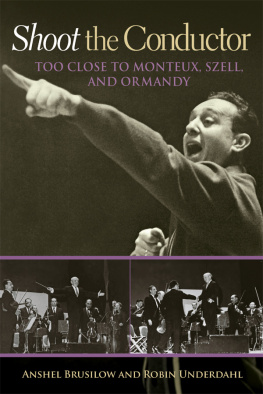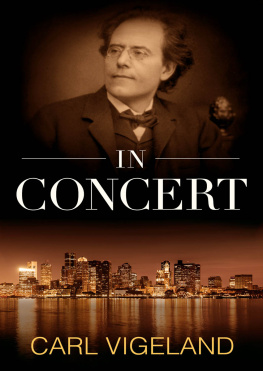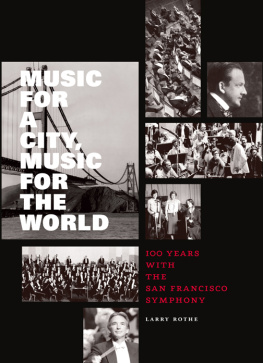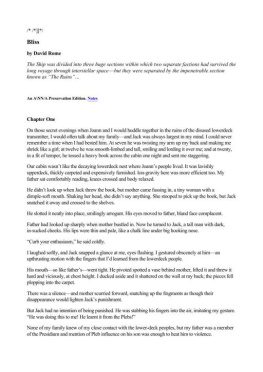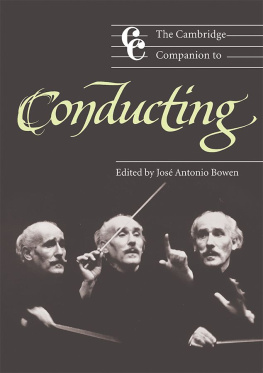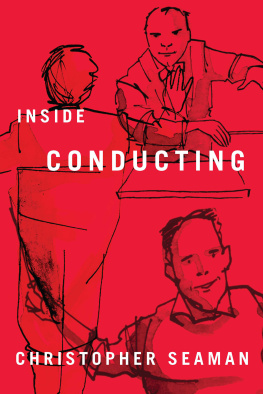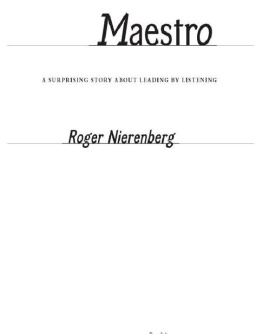Acknowledgments
MY FATHER AND MOTHER, Leon and Dora Brusilow, deserve first mention for their dedication to the musical development of their two sons as well as the love and affection shown to us. I wish to honor Nathan, my brother, a world class clarinetist who was instrumental in putting together the Chamber Symphony of Philadelphia. And my darling wife and confidant, Marilyn, who stood by me every inch of the way and encouraged me when life and career were most bleak. My children David, Jennie, and Melinda also played a role in this memoir, and even our grandchildren, Jessica, Kyle, Stephen, Amy, and Jon David. Our great-granddaughter Madeline Rollins, born September 22, 2014, brought so much joy that I forgive her for distracting me from this work.
I wish to express my deepest appreciation to my dear friends Naomi and Gary Graffman. They met with Robin early in the process and have cheered us on and added detail to memories. Naomi read the manuscript repeatedly and helped in many ways.
I am grateful to Mr. Edwin Fleisher for sending my father and me to Mr. William F. Happich, who gave me my musical foundation. I was thrilled that Mr. Efrem Zimbalist, Sr., took me as a student at the Curtis Institute of Music. It was Dr. Jani Szanto who gave me the understanding of how to say something through the music and to understand the wishes of the composer. He was the teacher who most formed me as a musician.
I thank Joe Barone for introducing me to the Monteuxs. The friends I made in Hancock, MaineHarold Glick, Earl Murray, and otherswere life-long. The Meyer Davis family were kind to me there, and the Sakovich family took me in when I went to San Francisco to study with Matre.
I acknowledge my affection and admiration for Stan Grossman, my Assistant Concertmaster and my very best friend while growing up.
I would add Ken Cuthbert for giving me the opportunity to join the North Texas State University, later to become the University of North Texas. My dear friends George Papich and Martin Mailman taught me what teaching at a university means. Clay Couturiaux was first my student and became my invaluable assistant at the College of Music. Now my talented successor at the Richardson Symphony Orchestra, he has been instrumental in the research for this book.
My deepest affection and appreciation go to Robin Underdahl, my coauthor, without whom I could not have told this story. I thank my former student, Irene Mitchell for introducing me to Robin. Irene was determined that my memories and experiences should not be lost and she has been involved in our process from start to finish with everything from reading the manuscript to finding photos to bringing chicken soup.
We also want to thank manuscript readers Bill Marvel, Drema Berkheimer, Julianne McCullagh, Dan McCartney, and many more who read specific chapters. Old friends, colleagues, and students talked with Robin or me during the writing and greatly enriched the broth: Margaret McDermott, Wilfred Rogers, Cliff and Sandy Spohr, Jean Larson Garver, Arturo Ortega, Victor Marshall, Doug Walters, Phil Kelly, Elisabeth Adkins, and others.
I am afraid that I have failed to name many who have played an important role in my life and career. I ask you all for your forgiveness. I couldn't have stayed the ground without your help and encouragement. You are all a part of this memoir.
Chapter 1

I CAME BY IT HONESTLY
I BELIEVE MY FATHER JUST looked Mr. Fleisher up in the telephone directory and asked if he could bring his son to play violin for him. Edwin A. Fleisher was a great man of music in Philadelphia. In that year, 1933, he published a list of his astounding collection of music from all over the world. He had already deeded the collection to the Free Library of Philadelphia.
Mr. Fleisher always made time for a musical child, even a five-year-old. The Jewish Hatikvah sufficed as my audition, and he recommended a teacher for me: William Happich.
So my father took me downtown to Brentano's bookstore on Chestnut Street. But we didn't enter the bookstore. We went in a door a few steps farther down the street, one that opened on a steep flight of stairs. These we climbed, then went around a corner, and climbed more stairs. On the third floor, we entered a room where a portrait of a stern man with wild hair faced us.
Who's that? I don't like him.
That's Beethoven, my dad said. Someday you'll play his wonderful music.
No, I won't.
A tall man in a dark suit came out of an inner room and shook hands with my father. His precise manners made me feel clumsy. Still, he was an improvement over the man in the portrait.
He led us into the inner room, where I opened my case and removed my treasure. Playing the beautiful Hatikvah on my own little violin was an experience all to myself. I listened to what I was playing, and my mind drifted along with the notes, and the other people in the room might have gone down to Brentano's for all I cared.
However, they were still in the room.
Do you really want to play the violin? Mr. Happich asked me.
Yes.
Will you work very hard?
I had no idea what that meant, but I knew the conversation would go better if I said yes.
Then I will take you as my student.
I learned to say his name correctly, Mr. Hoppik, and got used to his formal approach to teaching violin.
You'll never sound good until you tuck that left elbow in. Did he realize, as he said such things in my father's presence, where I had learned every bad habit in my repertoire?
He showed me how to place my fingers correctly in the first position, at the top of the neck. I was sure I was ready for the second position.
After about a month, Dad opened the door on Chestnut Street one day, and we confronted the stairs.
I'm tired.
You're tired. What's anyone supposed to do about that?
Can I have a piggyback ride?
My dad stooped down and I climbed on with my violin case.
It was a good deal during the several weeks it lasted.
The room where we waited for my lesson had a large rug woven in a pattern of squares. Since I wasn't as tired as my dad, I hopped from square to square while we waited.
Stop it, Anshel. You'll use up your energy, he used to say.
Mr. Happich kept me in first position for three months. He provided the music, finding pieces that required only the notes I could play. I remember a piece called Melody in F that did justice to my enormous talent.
But soon he started me on the tudes Otakar evk wrote for teaching violin in 1880, and they did not do justice to my talent at all. Under the torture of his School of Violin Technics, I learned to navigate second through seventh positions, shifting, double-stopping, trilling, and string crossings. The odious tudes built solid technique for me, just as they long had, and still do, for young violinists the world over.
What else do you hear? Mr. Happich asked me this right in the middle of a piece I was rendering oh-so-melodically.
I hear this song. That long A and then the short Ds.
But what else?
Outside, a bus ground its gears on Chestnut Street. Was that what he meant?
What else? he insisted. Then he played some notes on the piano. They sounded familiar. This is what the piano was doing while you were playing your part.
Of course, it was true. He often played some accompaniment for me. As he replayed it, I remembered it.
You must always listen while you play. Listen to all the music, not just your own.
That was a new thought for me, one that would expand. Later I would listen to the other students if we played together in a class, and later yet to the other instruments when I played in an orchestra. It seemed a little thing that day. But it became huge.

